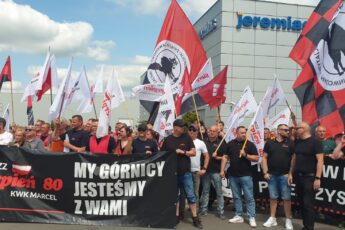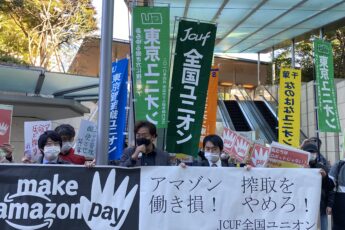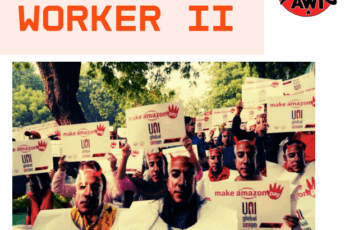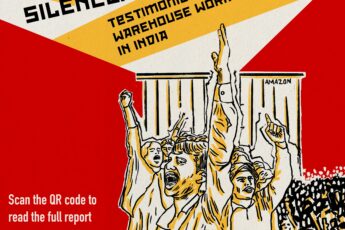
by JOHN MURRAY (Plan C, UK)
We publish a report of the current struggles carried on by Deliveroo, Uber and UberEats workers in the UK. Next appointment for discussion the workshop on logistical strike at the TSS London Assembly on Feb. 11th, with the participation of the curriers protagonists of these very struggles.
In 2016, workers in the «gig economy» in London began a series of spontaneous struggles against pay cuts and bad conditions. Deliveroo, Uber and UberEats all saw effective strikes and protests. These conflicts, emerging as they did in a period of low industrial conflict, prompted new analyses of the situation in the areas of the economy which had previously been considered «unorganisable». After this initial wave, there has been a period of consolidation and organization, which is now setting the groundwork for more, larger struggles in the future.
The «gig economy» in the UK is small, only employing about 3% of the workforce, but it could potentially have importance beyond its size. «Algorithmic management», the technique for managing exploitation being developed in this sector, is likely to spread. Over the next few years it will increasingly reorganize the labor process that is imposed on the low wage and precarious sector of the workforce. As a result, any developments in forms of organization and conflict made by workers in the gig economy could also spread along with it. Certain forms of action are linked to certain compositions of capital, class and labor process, and there is a chance for lessons to be learnt in these conflicts to find wider relevance. Algorithmic management itself carries certain potentials for resistance, and our aim is to produce a mode of struggle that can follow this organisation of the labour processes wherever it spreads. This strategic potential has led the social strike working group of Plan C, a member of the TSS platform based in the UK, to begin initiatives to help organise Deliveroo workers on a national and transnational basis.
One of the major problems of the strike in the summer led by Deliveroo riders in London is that it failed to spread beyond the networks they had formed in their specific areas of London. The messaging groups that the riders used to co-ordinate their strike were formed by meeting and talking with other riders in person, so there were no connections that could expand the strike beyond London. It couldn’t escalate to become a national strike because there was no national infrastructure to support that escalation.
To this end, we began the Rebel Roo, a monthly self-organised workers bulletin for Deliveroo workers. The bulletin aims to help circulate demands, tactics, struggles and desires to create collective consciousness and subjectivity around the country and to set up a distribution network that can serve as a scaffold for organising through base unions (the IWW and IWGB). We’re currently finishing off the fourth edition, and the numbers printed and distributed have grown substantially every month.
The bulletin has reported on struggles and conditions for Deliveroo workers in Germany and France, as well as the strike of Foodora couriers in Italy. In producing these transnational connections the hope is that we will also build circulation and organisation on this wider scope, and enable base unions and rank and file groups to co-operate across national borders on wider questions of the political condition of digital exploitation.
Gradually, the level of national and transnational organisation of Deliveroo riders is growing. Any struggles that emerge now are likely to benefit from greater levels of organised support, co-ordination and experience. We are learning how to take «unorganisable» working conditions and turn them into a source of power. For example, often the gig economy dispenses with formal employment contracts, instead making its workers accept false «self-employment». But while this removes some of our rights, it also frees us from repressive trade union legislation aimed at preventing direct democratic control of the strike weapon. Similarly, precarity and the rapid turnover of workers makes building high union density difficult, but it also means that there is a constant circulation of militants with experience of strikes between precarious jobs, which offers its own set of organising opportunities.
If you want to get in touch, particularly if you work at a company like Deliveroo or Foodora, email us at rebelroouk@gmail. com.





